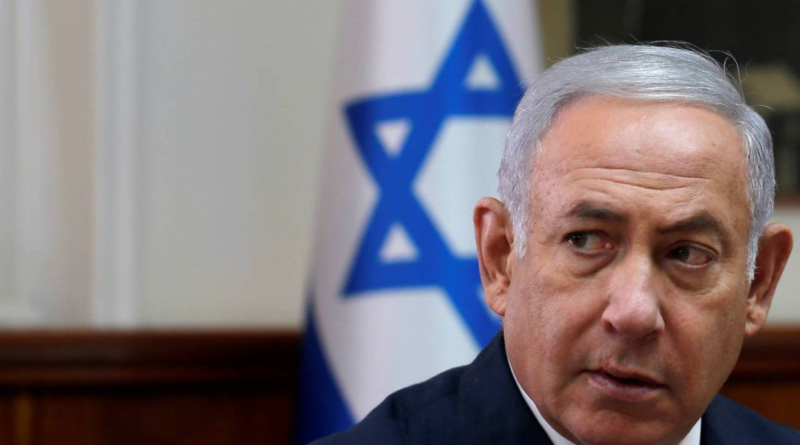Israel braces for attack by Iran
Israel braced for a possible attack from Iran and regional militias in retaliation for assassinations of Hezbollah and Hamas officials as the US sent defensive reinforcements while pressing for a Gaza cease-fire deal.
Prime Minister Benjamin Netanyahu said at the start of a cabinet meeting Sunday that “Israel is in a multifront war against Iran’s axis of evil. We are striking every one of its arms with great force. We are prepared for any scenario – both offensively and defensively.”
The US, which is moving a fighter jet squadron to the region and keeping an aircraft carrier nearby to help Israel, is also pressing Netanyahu to redouble negotiations for a cease-fire in Gaza to prevent the nearly 10-month-long war from escalating. The hope is that would calm the region since Hezbollah’s been firing at Israel in solidarity with Gaza.
Group of Seven foreign ministers expressed concern about the risk of a wider regional crisis during a video call on Sunday, Italy’s Foreign Ministry said in a statement. US Secretary of State Antony Blinken discussed “the urgent need for de-escalation in the Middle East” with his counterparts, State Department spokesman Matthew Miller said.
Blinken told his G-7 counterparts that an attack on Israel by Iran and Hezbollah could begin as early as Monday, Axios reported, citing three unidentified sources briefed on the call. The US doesn’t know the exact timing, Blinken said, but sees the attacks starting in the next 24 to 48 hours, Axios reported.
The shekel fell for a sixth straight day on Monday to 3.84 per dollar as of 9:10 a.m. in Tel Aviv, its weakest level since November. Israeli stocks dropped on Sunday in what was their worst day since October.
Ayman Safadi, the foreign minister of Jordan, which is located between Iran and Israel and whose airspace will be deeply vulnerable in any confrontation, made a rare visit to Tehran on Sunday.
US Deputy National Security Advisor Jon Finer appealed to the sides to “get back to the table.” If a cease-fire in Gaza could be agreed, that could delay any retaliation.
Netanyahu said the problem is that Hamas keeps changing its demands. Others say Israel has done the same, making a deal harder.
Leaders of both Iran and Hezbollah have sworn that the killings last week in Beirut and Tehran would not go unanswered, that red lines had been crossed and attacks were coming.
Israeli officials said any assaults, expected imminently, were likely to be simultaneous and could come from Hezbollah in Lebanon, the Houthis in Yemen and Iran itself. In April, after Israel killed two Iranian generals in Syria, Iran for the first time fired more than 300 projectiles at Israel, nearly all of which were shot down by Israel and a coalition of US-led powers with regional assistance.
In Israel, GPS systems were telling stunned residents of Tel Aviv that they were in Beirut — part of a scrambling to make it harder for an attack to be successful. Two officials said the cabinet has been issued with satellite phones to enable communications should phone lines crash under shelling or cyberattacks.
With numerous foreign carriers — Delta, United, Lufthansa — suspending flights to and from Israel for fear of getting caught in crossfire, thousands of Israelis are stuck abroad. El Al, the national carrier is trying to add more flights to bring Israelis home. The transport ministry says it will requisition navy boats to help ferry Israelis back from Cyprus, if needed.
The US, UK, Canada and other countries are urging their citizens to leave Beirut. France also told its citizens to get out of Iran.
Within Israel, a West Bank Palestinian on Sunday morning stabbed to death two elderly Israelis in a park and bus station in the city of Holon near Tel Aviv before being shot dead by police, adding to the rising tensions.
Israel’s military struck two schools in Gaza City it said were housing Hamas command-and-control centers. Palestinian officials said the schools sheltered displaced people and at least 30 were killed.
‘Work of Diplomacy’
An Israeli delegation led by the country’s intelligence chief visited Egypt on Saturday seeking to make progress in the long-stalled Gaza war talks, but returned with no immediate sign of a breakthrough.
The proposed arrangement, which is backed by the US, could help reduce the scale of reprisals from Hamas, Hezbollah and Iran after the killings last week of senior militants. In Israel, as well, there was a hope that diplomacy could delay the expected attack.
“We still believe the gaps are narrow enough to close,” John Kirby, spokesman for the White House’s National Security Council, said on Fox News Sunday.
President Joe Biden conveyed the message to Netanyahu that “this deal needs to get done” when the Israeli leader visited Washington in July, Finer said.
“In this context, when there’s so much going on in the region, and the risk level and the threat level is so high, there are always these external events that can make these negotiations themselves much more difficult,” Finer told CBS.
“But, you know, this is the work of diplomacy,” he said. “It’s not about frustration.”



